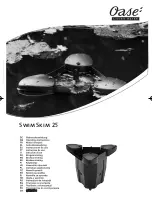
– 23 –
The alarm current provided by zone 8 will support only one Glass Break detector in
the alarmed state.
You can use detectors which exceed 1.1k ohms in alarm, provided they maintain
a voltage drop in alarm of less than 3.8 volts.
A. Do not use other NO or NC contacts when using glass break detectors on zone
8. Other contacts may prevent proper glass break detector operation.
B. If latching type devices are installed on both zones 1 and 8, both zones should
be assigned to the same partition. If they are not, and both devices are in alarm
at the same time, the resetting of one could cause a loss of alarm memory in the
other.
Zone 9
Applications
This zone is unsupervised and is suitable for monitoring fast acting glass break
sensors or vibration sensors. When using zone 9, keep the following in mind:
• Use only closed circuit devices connected in series with one another.
• Programme zone 9 as any response type except fire (type 09) or panic (types
6,7 or 8)
• Programme fast (10 msec) or normal (350 msec-500 msec) response in data
field *14.
Avoid using mechanical magnetic or relay type contacts on zone 9 when programmed
for fast response.
Check-Out
Procedure For
Basic Wired Zones
After installation and programming of all basic wired zones is complete, each
partition of the security system should be checked as follows:
1. Make certain that all devices and sensors connected to the basic wired zones
are not in a faulted state. Doors and windows with contacts should be closed,
PIRs should be covered (use a cloth to mask them temporarily if necessary).
2. With all basic wired zones intact, the keypads connected to the system should
display:
D I SA R M ED
R E A D Y T O A R M .
If the following is displayed,
D I SA R M ED P r e s s
✴
t o s h o w f a u l t s
press the [
✴
] key to display the faulted zone(s). Restore any faulted zone(s)
as necessary (also make sure that you have connected a 2000 ohm EOL
resistor across the terminals of unused zones). When the
DISARMED...READY TO ARM message is displayed, you can proceed to the
next step.
4.
Fault and then restore every contact or sensor on each zone individually to
ensure that it is being monitored by the system. Each time a zone is faulted,
the keypads in the partition to which the zone is assigned should display the
number of the faulted zone. When each zone is restored, the READY TO
ARM message should appear again.
If a zone or zones are not displayed at the correct partition's keypad(s), check both
keypad and zone programming to verify the correct partition assignment.
5. When you get the proper displays on the keypad(s), the basic wired zones in
the system are functioning properly.
6. Disconnect AC mains.
















































